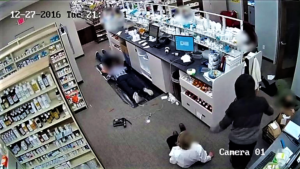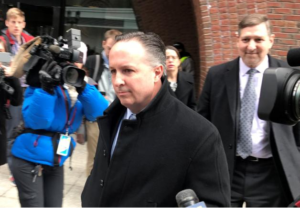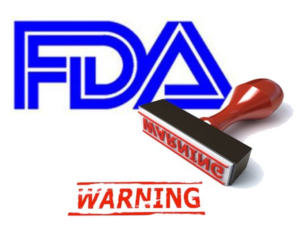- Chinese courts call for death penalty for researchers who commit fraud (statnews.com)
An eye for an eye, a tooth for a tooth — a life for a lab book?...In the past few months, China has announced two new crackdowns on research misconduct — one of which could lead to executions for scientists who doctor their data...Scientists have been sounding alarms for years about the integrity of research in China. One recent survey estimated that 40 percent of biomedical papers by Chinese scholars were tainted by misconduct. Funding bodies there have in the past announced efforts to crack down on fraud, including clawing back money from scientists who cheat on their grants...Chinese...Ministry of Science and Technology proclaimed a "no tolerance" policy for research misconduct — although it’s not clear what that might look like...the mass retractions "seriously harmed the international reputation of our country’s scientific research and the dignity of Chinese scientists at large."...courts approved a new policy calling for stiff prison sentences for researchers who fabricate data in studies that lead to drug approvals. If the misconduct ends up harming people, then the punishment on the table even includes the death penalty...
- Korea issues third set of punishments in Novartis bribery case (fiercepharma.com)
South Korean authorities aren’t letting Novartis off the hook easily in an ongoing bribery controversy. After a separate agency fined the drugmaker nearly $50 million over kickback payments in April, antitrust authorities in the country have just issued a new fine and complaint against the Swiss drug giant...South Korea’s Fair Trade Commission fined Novartis 500 million won ($445,000) and filed a new complaint over payments the company offered doctors between March 2011 and August 2016, according to the Korea Times...The developments come shortly after the country’s Ministry of Health & Welfare fined Novartis 55 billion Korean won—approximately $50 million—and suspended reimbursement of Exelon and Zometa for three months, alleging the company’s employees provided approximately $2.3 million in unlawful kickbacks…
- Given second chance, doctor instead ‘poured poison’ into community by running pill mill (fiercehealthcare.com)
After running afoul of the state licensing board, an Alabama internist had a chance to turn his life around. Instead, he took to running a pill mill and sold drugs to addicted patients, including at least one who died of a methadone overdose just days after receiving a prescription from the doctor...Robert M. Ritchea, M.D, a 54-year-old doctor who practiced in Phenix City, was sentenced earlier this month to serve 10 years in prison for operating a pill mill through his medical practice and for money laundering…former patients testified that they made cash payments to Ritchea of at least $150 each month in exchange for office visits at his family medical practice and prescriptions to maintain their drug addiction...he wrote prescriptions for controlled substances...knowing that his patients did not actually need the drugs prescribed. He then laundered the proceeds of his drug dealing to essentially run his own pharmacy, buying hydromorphone and hydrocodone directly from a drug manufacturer and distributing the pills from his medical practice…
- Report: Hanmi’s failure to report patient death in olmutinib study broke South Korea’s medical laws (endpts.com)
A Korean patient taking Hanmi’s cancer drug olmutinib died from a rare case of Stevens-Johnson syndrome a full 14 months before it was reported to the country’s health authorities, triggering a scramble that ultimately caused its partner Boehringer Ingelheim to abruptly withdraw from their $730 million partnership on the drug…Korean officials determined that Hanmi broke two medical laws related to monitoring and reporting clinical trials…the case dates back to the death in July 2015, when a patient taking olmutinib and two other drugs died from the lethal skin condition...the case dates back to the death in July 2015, when a patient taking olmutinib and two other drugs died from the lethal skin condition. The physicians involved in the case...reported the case to a monitoring agency...it was not reported as an unexpected serious adverse event...Hanmi and the monitoring agency finally reported the death to health officials in September, 2016...only after Hanmi said it first became aware of the incident...The case spurred accusations...that the influential Hanmi...had intentionally delayed reporting the death so it could get the drug approved in Korea.
- ‘Pharma bro’ Martin Shkreli heads into fraud trial (reuters.com)‘Pharma Bro’ defies advice to keep quiet before fraud trial (cnbc.com)
Martin Shkreli, the pharmaceutical entrepreneur vilified as the "pharma bro" for raising the price of a life-saving drug by 5,000 percent, will go on trial...for what U.S. prosecutors called a Ponzi-like scheme at his former hedge fund and a drug company he once ran…The charges that led to his arrest in December 2015...focus on Shkreli's management at Retrophin and the hedge fund MSMB Capital Management between 2009 and 2012...Prosecutors said Shkreli lied about MSMB's finances to lure investors and concealed devastating trading losses from them. They said he paid the investors back with money stolen from Retrophin…
- Suspected drug thefts persist at VA hospitals after ‘zero tolerance’ announced (abcnews.go.com)
Federal authorities are investigating dozens of new cases of possible opioid and other drug theft by employees at Veterans Affairs hospitals, a sign the problem isn't going away as more prescriptions disappear...Data...show 36 criminal investigations opened by the VA inspector general's office from Oct. 1 through May 19. It brings the total number of open criminal cases to 108 involving theft or unauthorized drug use. Most of those probes typically lead to criminal charges...Doctors, nurses or pharmacy staff in the VA's network of more than 160 medical centers and 1,000 clinics are suspected of siphoning away controlled substances for their own use or street sale — sometimes to the harm of patients — or drugs simply vanished without explanation...an IT specialist at the VA, says he's heard numerous employee complaints of faulty VA technical systems that track drug inventories, leading to errors and months of delays in identifying when drugs go missing. Prescription drug shipments aren't always fully inventoried when they arrive at a VA facility, he said, making it difficult to determine if a drug was missing upon arrival or stolen later...
- Pharmacy Society of Wisconsin Teams with Attorney General to Reduce Pharmacy Armed Robbery (pharmacytimes.com)
In 2015, the State of Wisconsin was third in the nation with 45 pharmacy armed robberies. In 2016, the state dropped to 31st in the nation with only 6 pharmacy robberies. That’s 39 fewer robberies than in the previous year or a 750% decrease..." Wisconsin AG Unveils New Effort to Prevent Pharmacy Robberies."...Wisconsin Attorney General, Brad Schimel, along with the Pharmacy Society of Wisconsin and law enforcement have formed a "comprehensive pharmacy robbery prevention and response training program."...Attorney General Schimel...told me, "we have a strong relationship with the Pharmacy Society of Wisconsin and have been working closely with them for the past 3 years. Certainly it was the high numbers (robberies) in 2014/2015 that concerned us. It’s probably been in the last 6 months that we have been working most intensively with them and this program."...the robbery program focuses on the following:
- Opening and closing practices at retail pharmacies
- Good in-store surveillance camera placement
- Time-delayed opening narcotic safes
- Phone etiquette
- Signage within a pharmacy (Time delayed safes, video equipment is use, etc.).
- Pharmacy exec seeks new trial over role in deadly U.S. meningitis outbreak (reuters.com)
Lawyers for a Massachusetts pharmacy executive convicted of fraud for his role in a 2012 U.S. meningitis outbreak that killed 64 people asked a judge to order a new trial, charging that prosecutors misbehaved in providing evidence to the jury...Barry Cadden, co-founder of the now-defunct New England Compounding Center, was cleared of second-degree murder charges but was found guilty in March of racketeering and fraud for his role in shipping injectible steroids tainted with fungus linked to the deadly outbreak that also sickened 753 people in 20 states...Cadden's attorneys argued that prosecutors overreached in the number and severity of criminal charges that they filed against him. The attorneys said the prosecutors misled the jury by providing them a binder filled with laboratory tests showing that vials of steroids shipped by NECC were tainted but not providing comparable reports submitted by defense attorneys showing the vials were sterile.
- Las Vegas doctor convicted of sexual assault, kidnapping (reviewjournal.com)
A jury...convicted Binh "Ben" Chung, a Las Vegas doctor accused of drugging and raping patients, of sexual assault and kidnapping charges...Prosecutors claimed Chung, 43, had videotaped sex acts with three unconscious women and a teenage girl who also had been drugged...Chung told jurors that he had an ongoing consensual affair with one of the women, and that she was awake in the videos jurors watched, playing a role in his "Sleeping Beauty" fantasy...He said he had somnophilia, a fetish for having sex with someone who is unconscious. He also testified that the teenager prosecutors said he molested in another video was actually the woman with whom he claimed he had an affair...Jurors deliberated the case for more than eight hours, including roughly four hours Friday, before convicting Chung of 11 of the 14 counts, including use of a minor in the production of pornography, kidnapping, battery with intent to commit sexual assault, and four counts of sexual assault...
- FDA sends warnings letters to companies making cancer cure claims (drugstorenews.com)
The Food and Drug Administration...posted warning letters addressed to 14 U.S.-based companies allegedly illegally selling more than 65 products that fraudulently claim to prevent, diagnose, treat or cure cancer. The products are marketed and sold without FDA approval, most commonly on websites and social media platforms...Consumers should not use these or similar unproven products because they may be unsafe and could prevent a person from seeking an appropriate and potentially life-saving cancer diagnosis or treatment…The illegally sold products cited in the warning letters...include a variety of product types, such as pills, topical creams, ointments, oils, drops, syrups, teas and diagnostics (such as thermography devices). They include products marketed for use by humans or pets that make illegal, unproven claims regarding preventing, reversing or curing cancer; killing/inhibiting cancer cells or tumors; or other similar anti-cancer claims.










